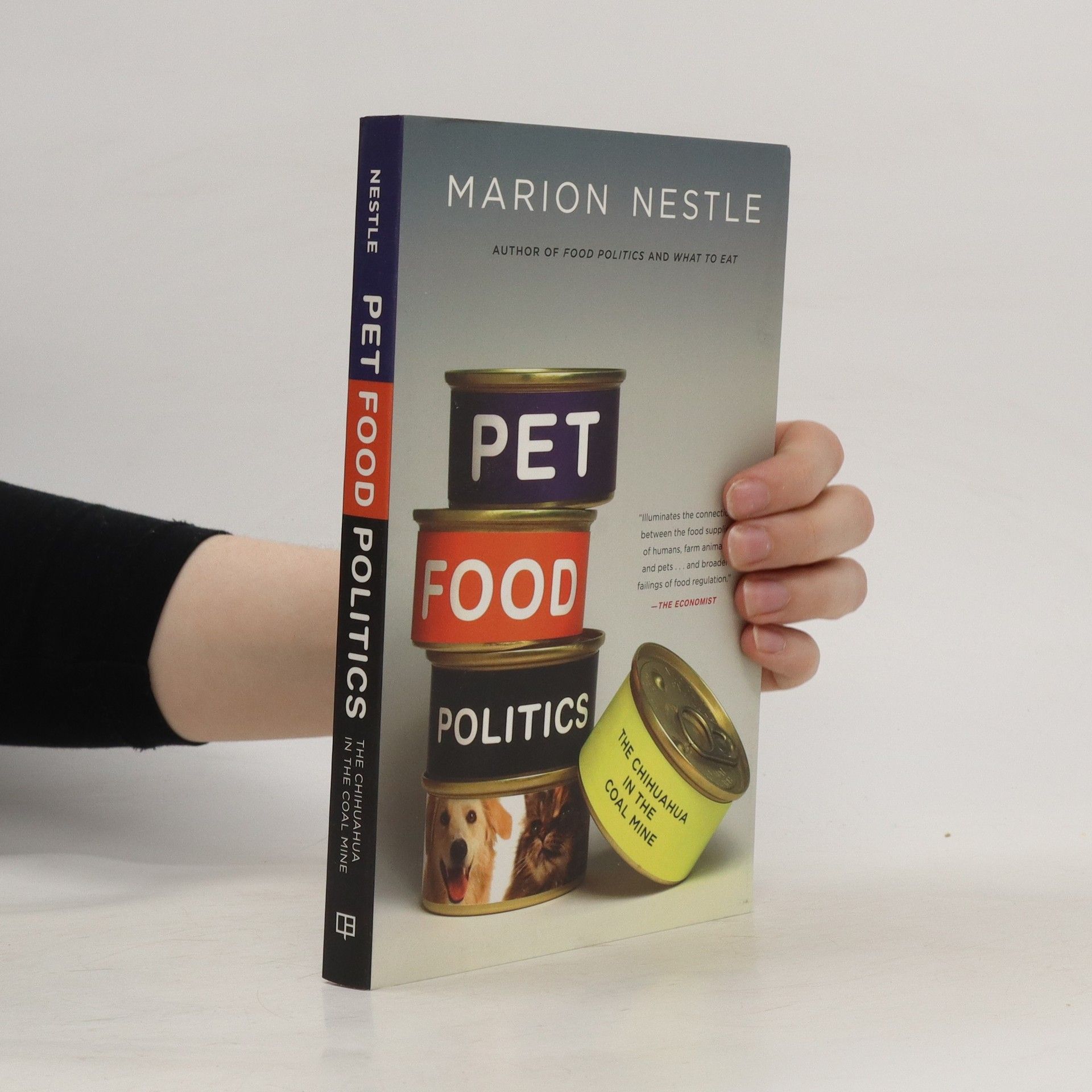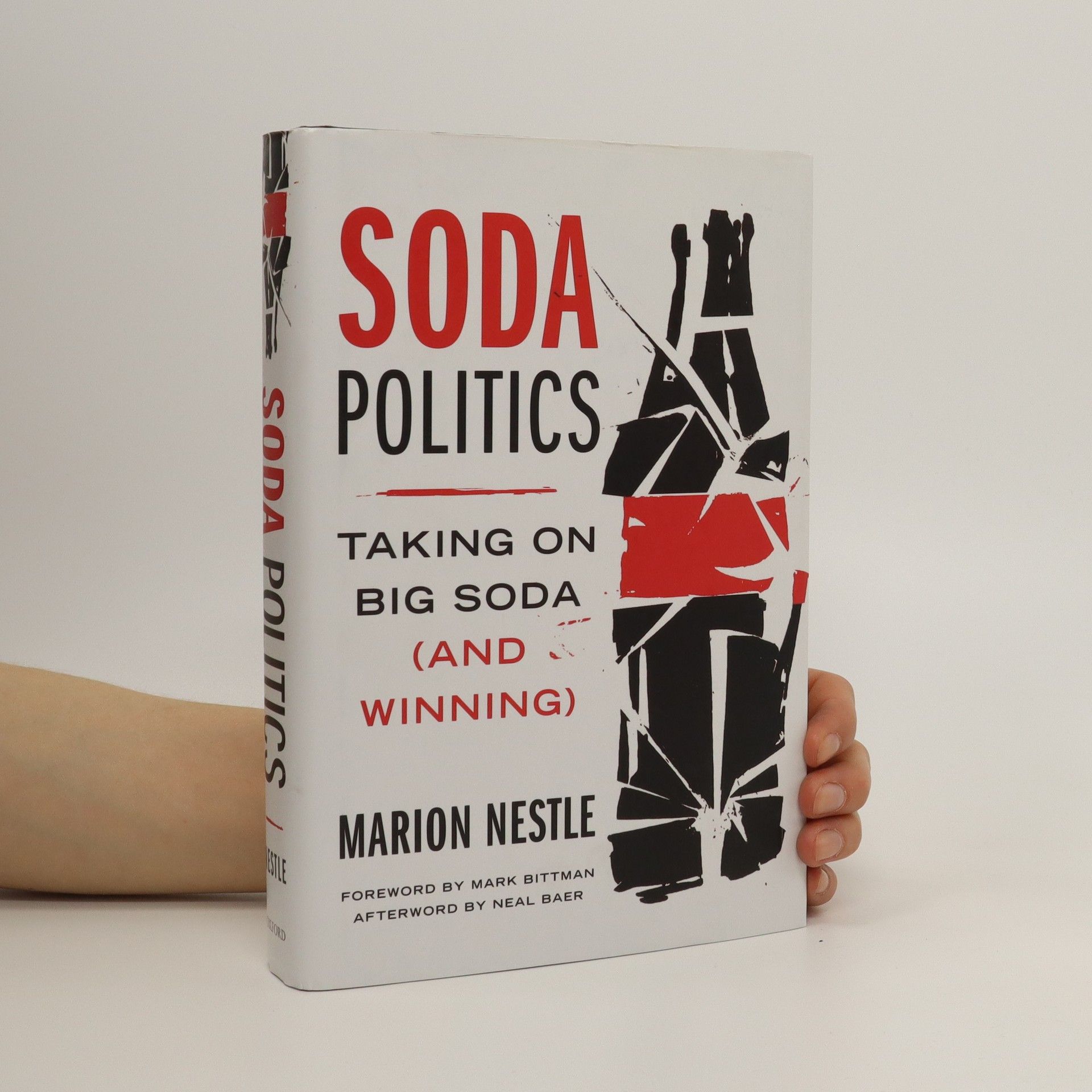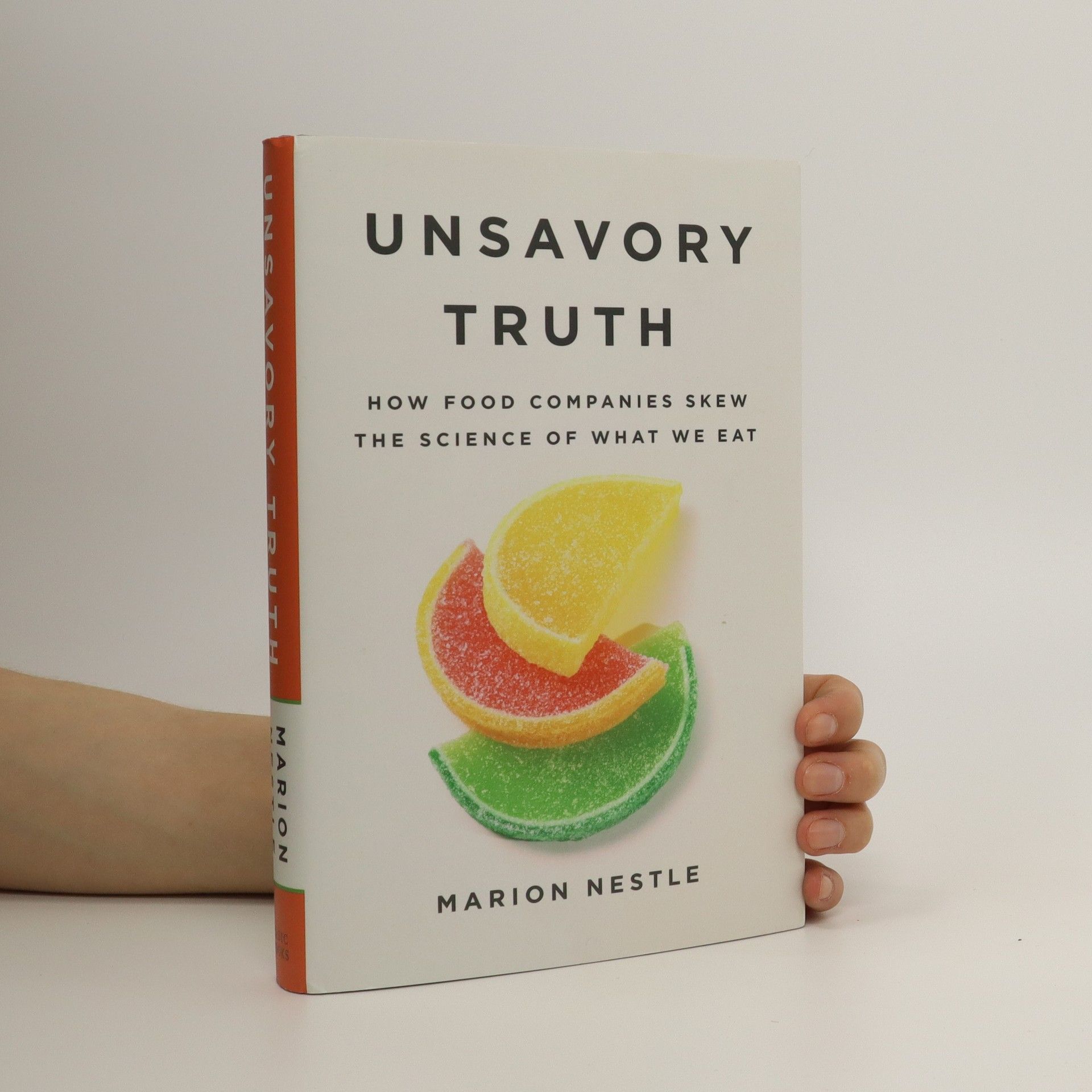"Slow Cooked tells the story of how Marion Nestle achieved a late-in-life career as a leading public advocate for healthier and more sustainable diets. Coming of age in post-World War II America, she had to overcome the barriers--familial, societal, and institutional--experienced by all women in that era. Here, she explains how she came to recognize the enormous influence of the food industry on our food choices, and wrote Food Politics and her other books about the politics of food, nutrition, and health. This is one woman's story with great relevance for anyone who eats"-- Provided by publisher
Marion Nestle Livres
Le travail de Marion Nestle explore la relation complexe entre la nutrition, les systèmes alimentaires et la santé publique, révélant les forces sociales et politiques complexes qui façonnent ce que nous mangeons. Elle examine de manière critique comment ces facteurs influencent nos choix alimentaires et notre bien-être général. Les analyses perspicaces de Nestle mettent en lumière les liens souvent négligés entre l'alimentation, la politique et la société. Son écriture encourage les lecteurs à considérer l'impact plus large des dynamiques mondiales sur nos repas quotidiens.






Food Politics
- 510pages
- 18 heures de lecture
We all witness, in advertising and on supermarket shelves, the fierce competition for our food dollars. In this title, the author reveals how the competition really works and how it affects our health. It illustrates food politics in action: watered-down government dietary advice, diet supplements promoted as if they were First Amendment rights.
Let's Ask Marion
- 216pages
- 8 heures de lecture
"There is no one better to ask than Marion, who is the leading guide in intelligent, unbiased, independent advice on eating, and has been for decades."––Mark Bittman, author of How to Cook Everything Let’s Ask Marion is a savvy and insightful question-and-answer collection that showcases the expertise of food politics powerhouse Marion Nestle in exchanges with environmental advocate Kerry Trueman. These informative essays show us how to advocate for food systems that are healthier for people and the planet, moving from the politics of personal dietary choices, to community food issues, and finally to matters that affect global food systems. Nestle has been thinking, writing, and teaching about food systems for decades, and her impact is unparalleled. Let’s Ask Marion provides an accessible survey of her opinions and conclusions for anyone curious about the individual, social, and global politics of food.
Pet Food Politics
- 232pages
- 9 heures de lecture
Marion Nestle tells the gripping story of how, in early 2007, a few telephone calls about sick cats set off the largest recall of consumer products in U.S. history and an international crisis over the safety of imported goods ranging from food to toothpaste, and toys.
What to Eat
- 611pages
- 22 heures de lecture
Since its publication in hardcover last year, Marion Nestle's What to Eat has become the definitive guide to making healthy and informed choices about food. Praised as "radiant with maxims to live by" in The New York Times Book Review and "accessible, reliable and comprehensive" in The Washington Post, What to Eat is an indispensable resource, packed with important information and useful advice from the acclaimed nutritionist who "has become to the food industry what . . . Ralph Nader [was] to the automobile industry" (St. Louis Post-Dispatch). How we choose which foods to eat is growing more complicated by the day, and the straightforward, practical approach of What to Eat has been praised as welcome relief. As Nestle takes us through each supermarket section--produce, dairy, meat, fish--she explains the issues, cutting through foodie jargon and complicated nutrition labels, and debunking the misleading health claims made by big food companies. With Nestle as our guide, we are shown how to make wise food choices--and are inspired to eat sensibly and nutritiously. Now in paperback, What to Eat is already a classic--"the perfect guidebook to help navigate through the confusion of which foods are good for us" (USA Today).
Eat Drink Vote: An Illustrated Guide to Food Politics
- 224pages
- 8 heures de lecture
Exploring the complexities of the US food system, this book addresses critical issues such as global hunger, obesity, and the decision-making processes behind food policies. It delves into the challenges of food labeling, safety, and nutrition in schools, making these intricate topics accessible to a wide audience. By highlighting the impact of food politics on everyday lives, it encourages readers to consider the broader implications of what they eat and the systems that govern food production and distribution.
Soda Politics: Taking on Big Soda (and Winning)
- 508pages
- 18 heures de lecture
How did products containing absurdly inexpensive ingredients become multibillion dollar industries and international brand icons, while also having a devastating impact on public health? In Soda Politics, Dr. Marion Nestle, a renowned food and nutrition policy expert and public health advocate, answers this question by detailing all of the ways that the soft drink industry works overtime to make drinking soda as common and accepted as drinking water, for adults and children.
Unsavory Truth
- 310pages
- 11 heures de lecture
A James Beard Award-winner and the author of What to Eat and Soda Politics, leading nutritionist Marion Nestle exposes how the food industry corrupts scientific research for profit. Is chocolate heart-healthy? Does yogurt prevent type 2 diabetes? Do pomegranates help cheat death? News accounts bombard us with such amazing claims, report them as science, and influence what we eat. Yet, as Marion Nestle explains, these studies are more about marketing than science; they are often paid for by companies that sell those foods. Whether it's a Coca-Cola-backed study hailing light exercise as a calorie neutralizer, or blueberry-sponsored investigators proclaiming that this fruit prevents erectile dysfunction, every corner of the food industry knows how to turn conflicted research into big profit. As Nestle argues, it's time to put public health first. Written with unmatched rigor and insight, Unsavory Truth reveals how the food industry manipulates nutrition science--and suggests what we can do about it.

